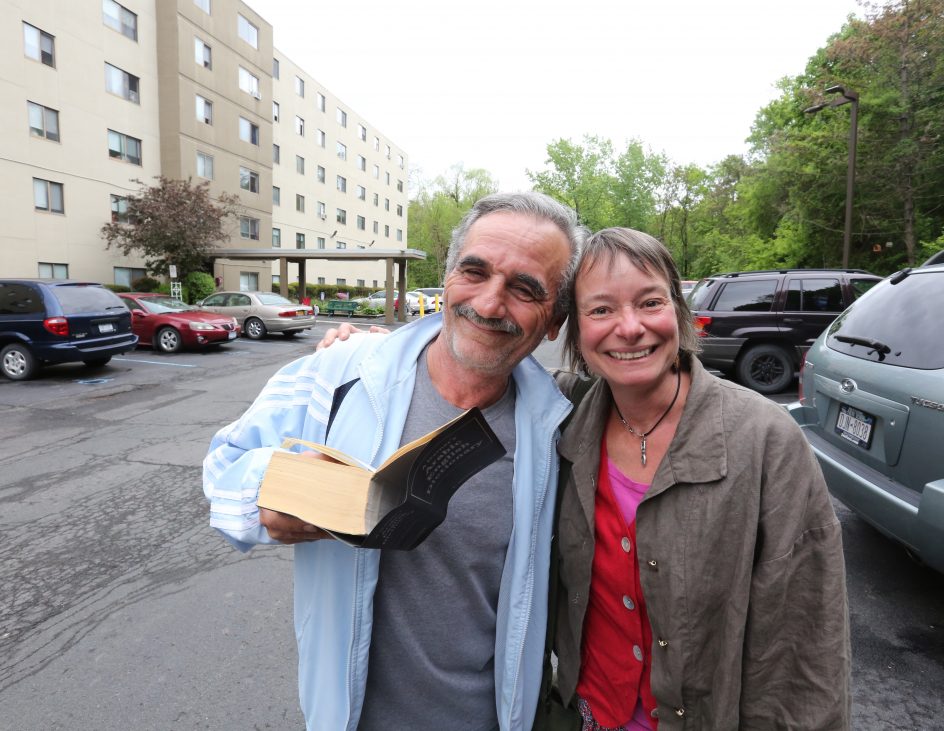
The news these days is full of war and migrants and nativists and populists, and the world sometimes seems to be falling into pieces.
It appears to be fragmenting, the rural areas pulling away from cities, nations pulling away from regions, everyone coming together and falling apart at the same time.
Nations are losing their borders, and people are losing their nations, the everyone questioning what role they and their countries out to play, country after country slamming the door.
The refugee has never been more evident, or more feared and despised and demonized.
The refugee is right in the middle of maelstrom. They and their children have seen too much. And it is never enough. There is no expiration date on suffering, they fled suffering to come her, now they must suffer to be here.
Working with the refugees more intensely in recent weeks, I am reminded it is not easy to start over in a new place. Exile and dislocation is not for everyone. “God never told me to kill another person,” a Muslim refugee told me two weeks ago, “and i asked a man to his face, did God tell you to kill my son”?”
She said he laughed and struck her with his rifle in the face. She showed me her still twisted nose.
The people who choose to start over are, to me, a chosen people. They all have horror stories they rarely tell, they have lost their family, friends, language, communities, identity, their ability to communicate. But their resilience surprises me again and again.
A soft-spoken mother will tell me how her family was butchered in a genocide, she spent a dozen years in a filthy and overcrowded refugee camp, she ended up in America with no money, no friends, no family, no support, no work.
And yet she will never complain, or quit, or go to pieces, blame anyone else for her troubles or sorrows. She still smiles and bows to strangers and offers them sweets.
In their determination to become American, they are very much unlike Americans, who whine about almost everything and are shocked and aggrieved by any kind of trouble.
We still have it in our heads that life is supposed to be perfect, that we are entitled to a perfect life, and we and our loved ones will live forever. The refugees have no such illusions.
They appreciate what they have, will take any job to get more, work day and night to learn English, get their licenses, labor for pennies and they mostly accept betrayal, cruelty and suffering as just another part of life, like music or the weather.
Saad never speaks of perfect life. He just wants to live here.
They refugees are teaching me a lot about acceptance.
Saad was waiting patiently for us when we pulled up from of his new apartment just outside of Albany. He is a warm and welcoming man, he speaks almost no English. A friend gave us her old Arabic-English dictionary and he just lit up when he saw it, he gave Maria a big hug and immediately began poring through it and then spoke the first English sentence I had heard him, he said he was “grateful and happy” that we came.
I think he had been working on that sentence.
It was almost like a speech, and Saad was quite proud of himself, and Maria and I congratulated him. They both seemed quite triumphant and I wanted to catch their joy on my camera.
Seeing how happy he was to get the dictionary, I realized how hard he is working to assimilate, to be able to find work (he has heart disease, diabetes and low blood pressure) to build a new life for himself from scratch. There is no hatred, anger, bigotry or lament in him. Life is hard and he will make the best of it.
Maria and I both loved helping put his apartment together.
He doesn’t need too much more from me. He is asking for nothing. But I can see some of his needs. A spring jacket, some more Arabic-English translation books and apps. I told Saad that in a month or two, he will come to the farm and we will be having long conversations about life and struggle and rebirth.
He looked at me and smiled, and shook my hand vigorously. “I am grateful and happy that you came,” he said.
